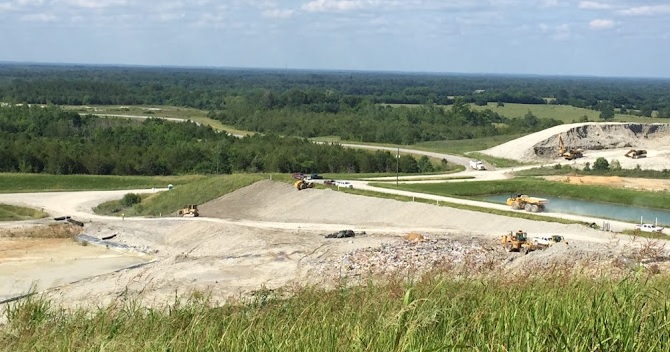On August 3, two significant developments unfolded in Alabama that could have far-reaching implications for the handling of coal ash in the state, and on the long-term environmental outlook for Uniontown and the Black Belt.
First, the U.S. Environmental Protection Agency (EPA) initiated steps to revoke Alabama’s coal ash permitting plan, citing inadequate protection of rivers and drinking water. If finalized, utilities in Alabama may be compelled to excavate and remove millions of tons of wet coal ash from unlined ponds, raising questions about where the excavated material will be disposed of.
The EPA’s decision marks the third time this year that the Biden Administration has attempted to enforce stronger environmental protections in Alabama. The proposed rejection is not yet finalized and will undergo a 60-day comment period, including in-person and online public hearings. Alabama Power, one of the state’s major utilities, is currently reviewing the new ruling and has previously been fined $1.5 million for elevated levels of contaminants near ash ponds.
On the same day, Waste Connections announced the acquisition of Arrowhead Environmental Holdings for $100 million. The deal includes a 1,400-acre railserved Municipal Solid Waste (MSW) landfill in Uniontown, Alabama, capable of handling about 3,500 tons a day.
The Arrowhead landfill has previously received thousands of tons of coal ash from the 2008 Kingston, Tennessee disaster, a move that sparked controversy and concern among Uniontown residents. The simultaneous timing of these announcements has led to speculation that the EPA’s decision may result in more ash being sent to the Arrowhead facility.
As Alabama grapples with the EPA’s rejection of its coal ash plan and the potential excavation of unlined ponds, the Arrowhead landfill’s future role in coal ash disposal will be closely watched. The situation underscores the complex challenges of balancing environmental regulations, waste management needs, and community concerns in the handling of potentially hazardous substances.
These developments mark a critical juncture in Alabama’s environmental landscape, with decisions made in the coming months likely to shape the state’s approach to coal ash management for years to come. The intertwining of regulatory actions, corporate acquisitions, and community interests paints a multifaceted picture of the ongoing efforts to address environmental protection and public health in Alabama.

